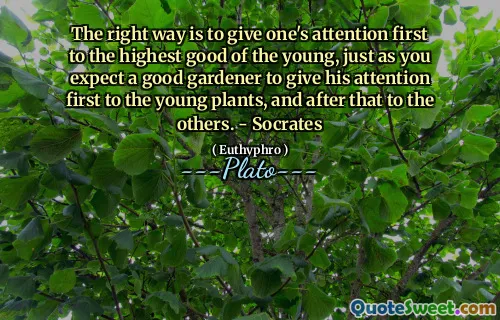"Euthyphro," a dialogue by Plato, takes place between Socrates and Euthyphro outside a court in Athens. The central theme revolves around the nature of piety and justice. Socrates, facing trial for corrupting the youth, encounters Euthyphro, who is there to prosecute his own father for murder. This situation sets the stage for a philosophical inquiry into what it means to be pious and how such moral concepts are defined.
Euthyphro initially asserts that piety is doing what he is doing—prosecuting wrongdoers. Socrates challenges this definition, urging Euthyphro to provide a more universal understanding of piety. They delve into the relationship between the gods' approval and morality, questioning whether actions are pious because the gods love them, or if the gods love actions because they are inherently pious. This exploration highlights the complexities of moral reasoning and divine influence.
The dialogue demonstrates Socratic questioning, emphasizing the importance of critical thinking and self-examination in understanding virtue. Ultimately, Euthyphro is unable to provide a satisfactory definition of piety, leaving both characters—and the reader—contemplating the intricacies of ethical conduct and divine law. The work serves as a foundational text in philosophy, illustrating how moral questions are often more profound than they seem at first glance.
More »
Today Birthdays
1955 -
Max Lucado
1946 -
John Piper
1842 -
William James
1907 -
Abraham Joshua Heschel
1887 -
Aldo Leopold
1755 -
Alexander Hamilton
1976 -
Alethea Kontis
1971 -
Mary J. Blige
1825 -
Bayard Taylor
1943 -
Jim Hightower
1885 -
Alice Paul
1923 -
Carroll Shelby
1928 -
David L. Wolper
1954 -
Kailash Satyarthi
1972 -
Amanda Peet
1946 -
Naomi Judd
1970 -
Malcolm D. Lee
1955 -
Christian Marclay
1973 -
Rahul Dravid
1987 -
Jamie Vardy
1942 -
Clarence Clemons
1992 -
Fatima Sana Shaikh
1948 -
Larry Harvey
1930 -
Rod Taylor
